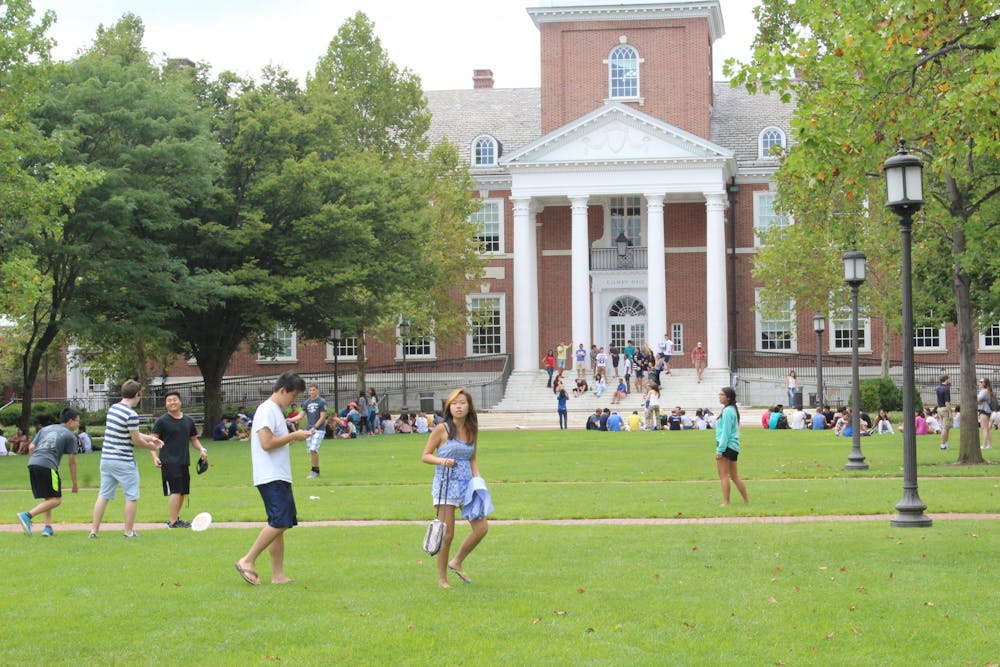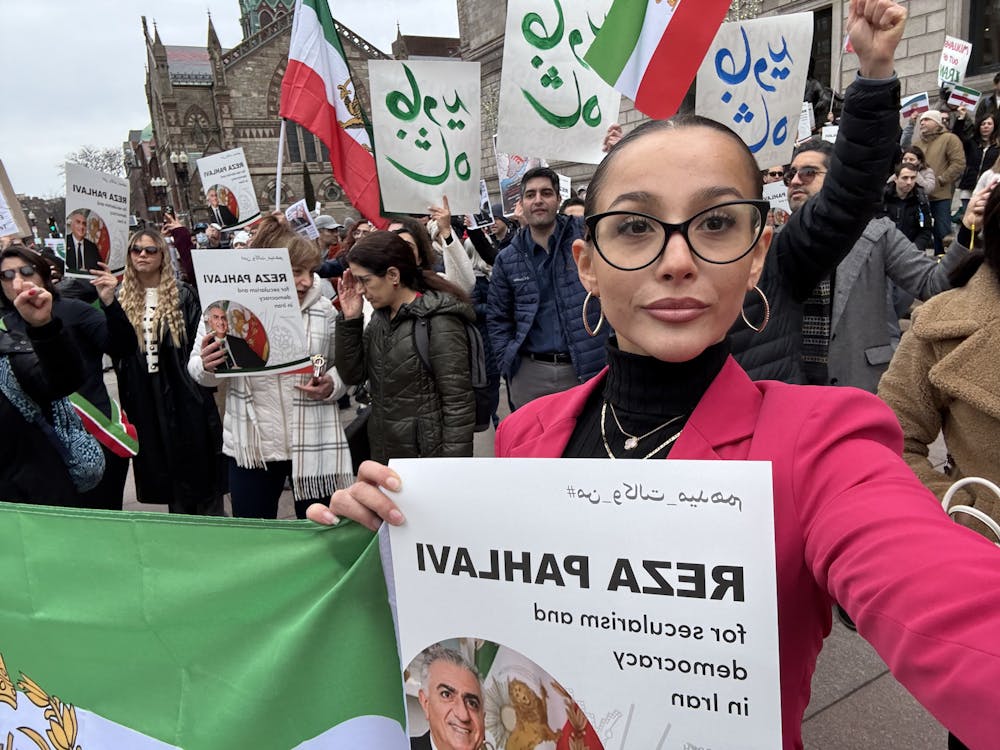A few weeks ago I opened my inbox and saw an email titled “Student Loss.”
“Damn,” I thought to myself. “I haven’t even been at this school for three months.”
We do not know the cause of death. The email ended with some recommendations on resources for counseling and religion/spirituality, accompanied by some vague attempts to persuade people to support one another.
I looked the student up on social media. His last photo was of him smiling. He had so many likes and comments. He was clearly involved in his community. It dawned on me that the email could have been about anyone, even someone I knew. Would the next one be?
The email made me realize: we at Hopkins need to pay more attention to one another.
Sure, I see that everyone is too busy and stressed by their commitments. According to a 2018 report by the University’s Task Force for Mental Health and Wellbeing, the Enrolled Student Survey from April 2016 shows that 30 to 40 percent of Hopkins students find “workload,” “balancing” and “future” to be “moderately” to “very stressful.” The report also points to the vulnerability of college-age students and mental health: “In addition to being more impulsive, young individuals tend to be more vulnerable to contagion after exposure to suicide within their community.”
The report also states that those who identify as members of marginalized groups, including women, people of color and first generation students “are at high risk for particular conditions.”
All of my friends identify with such groups. I want to make sure my friends are okay. But I had barely seen people I knew from the beginning of the year. They were all too busy. I was too busy. Too busy to have dinner together, too busy to respond to a text, too busy to stop studying. Perhaps it’s best to let people do their own thing. Perhaps I shouldn’t bother them. Everyone is just so busy. Apparently.
One time, for a Hopkins class project, I had to interview people for two minutes. Literally two minutes. Probably less. I told every person I approached about those two minutes. Still, I noticed that people were hesitantly pondering and mulling over the idea of participating for a minute or so (which if you notice, is a very large percentage of two minutes). Some just flat-out rejected me and returned to watching YouTube videos on their phone instead of studying. And when I could finally convince someone to participate, they discovered what made my project interesting and then they suddenly had all the minutes in the world to ask me about it.
Additionally, from time to time, I notice that people I once had meaningful, encouraging conversations with no longer say hi to me, whisking by me as if I owe them money and refuse to return it. Some literally look away as I walk closer, suddenly interested in observing the color scheme of a very specific portion of the sky. Maybe I’m just so ugly that I’ve offended people before I’ve even said a word, so they feel I deserve no greetings.
I thought to myself: what is wrong with people here?
I don’t know if it was just the people in my city or at my community college, but for some reason, most people that I knew had at least five minutes to touch base. It was usually refreshing or enlightening to hear someone else’s voice in my own head, to see the world in a different light for one moment in time. Now that I’m here at Hopkins, I feel like I need those five minute breaks for conversation even more frequently in my day, yet I am getting less of it.
A few weeks ago I magically managed to find the time to have lunch with my friend Abby. I asked her how she was doing. To my surprise, the words poured out. She told me how she missed home at times, especially the family gatherings that were a little crazy and chaotic, but in the end, fun, as everyone came together for food and music. It was something she missed, in stark contrast to how serious the atmosphere here is.
I didn’t know how badly Abby missed home. I didn’t know how badly she missed people who were just slightly more willing to be themselves, more willing to be more in touch with their heart and soul rather than their GPA. I just didn’t know — that is, until I asked.
After that interaction I wondered how many other people in my contacts list were just waiting for someone to talk to them. I wondered how many people are just holding it all in, heaving the world on their shoulders, pinned down by the pressure of their parents’ expectations, just waiting for someone to ask them if they are okay. I wondered how many people just need someone who was a little bit off, a little bit more talkative than usual, a little sillier than usual, so that they could have the permission to unclench their white-knuckled fists and just breathe.
Kindness takes practice. Greeting people takes practice. Letting people say “no” or nothing at all takes practice. Yet what also takes practice is choosing to ignore people, never saying hi and looking away. Both are difficult at first, but with practice, they come more and more naturally.
We can choose to be complacent and unkind to everyone. Or we can choose to be more kind to people outside of our own cliques and those we automatically latch on to.
I hope more people choose the latter. Every moment can be a moment to practice kindness, to practice it so that it can flow naturally even in the face of an abusive boss, a sore but necessary breakup or a fight with a family member.
I reread the email. I thought about Abby. I reopened my texts. I don’t know why my friends and I have such a hard time scheduling plans. We need to change. Anyone could just seem happy or fine, yet who knows what they are going through?
I decided to stop keeping track of how many times I initiated getting food with my friends. I decided to stop keeping track of how long they took to respond. I decided to just keep waving at and nodding at people, to keep reaching out to people, to ask why I hadn’t seen or heard from them in awhile, to keep asking questions.
In the end, it turned out that we were all happy and we spent time together anyway. And that should be all that matters.
To students at all elite institutions: For such levels of academic intelligence, the levels of emotional intelligence on campus is embarrassingly unmatched. Hopkins students — all students — need to be kinder to one another. Sure, we have academic pressures, and we are maybe too busy to perform monologues for one another, but apathetically dismissing one another needs to stop.
Just ask if someone is okay, or at least acknowledge one another. That might be all they need. You don’t even have to be friends. You don’t even have to open your mouth. A meaningful connection doesn’t have to take long — I promise you that two minutes (maybe less) is all it takes.
The economy of asking questions is unlike the economy of money. With money, you give a dollar, you lose a dollar. But questions? You ask a question, and you either gain a response (or more), or you lose nothing.
Keidai Lee is a transfer sophomore majoring in Computer Science and Philosophy and minoring in Psychology. He transferred from Monroe Community College in Rochester, NY.





